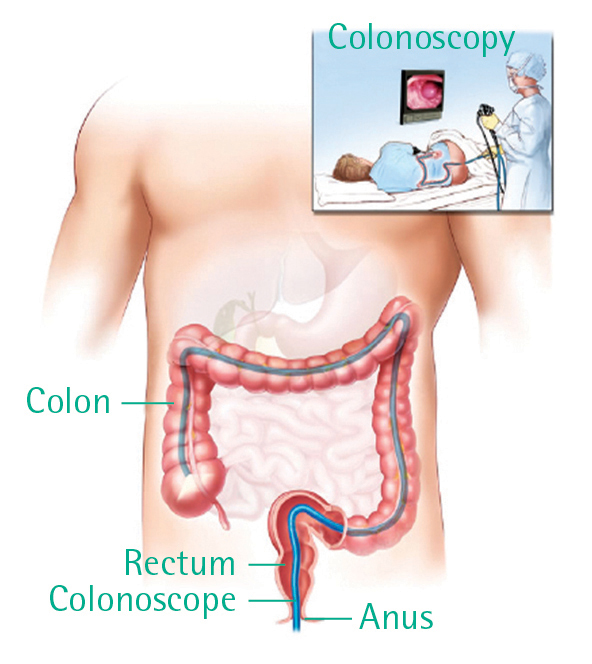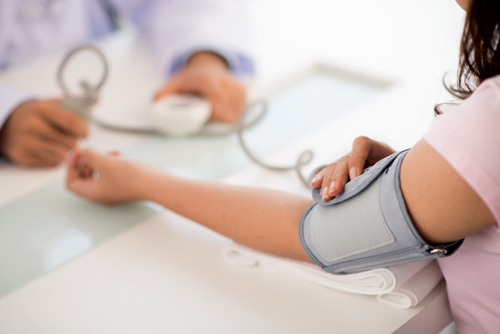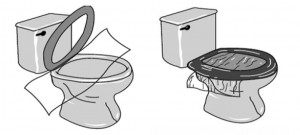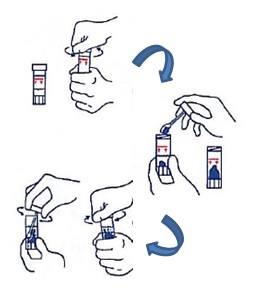SCREENING
Screening tests help your doctor find polyps or cancer before you have symptoms. Early detection of colorectal cancer will also improve effectiveness of cancer treatment. The following screening tests can be used to detect polyps, cancer, or other abnormalities.
Sometimes cancers or polyps bleed, and the FIT Kit (Faecal Immunochemical Test) can detect tiny amounts of blood in the stool. If this test detects blood, other tests are needed to find the source of the blood. Benign conditions (such as hemorrhoids), can also cause blood in the stool.
Your doctor examines your rectum and the lower part of the colon with a lighted tube (sigmoidoscpe). If polyps (benign growths that may lead to cancer) are found, they may be removed.

Your doctor examines your rectum and entire colon using a long, lighted tube (colonoscope). If polyps (benign growths that may lead to cancer) are found, they may be removed.
This procedure involves filling the colon and rectum with a white liquid material (barium) to enhance x-ray pictures. Abnormalities (such as polyps) can be seen clearly.
In this test, special X-ray equipment is used to produce pictures of the colon and rectum. A computer assembles these pictures into detailed images that can show polyps and other abnormalities.
If you have a symptom or screening result that suggests colorectal cancer, your doctor must find out whether it originates from cancer or other health conditions.
Your doctor will ask about your personal and family medical history and perform a physical examination.
If abnormalities (such as polyps) are found, a biopsy may be required. Often, the abnormal tissue can be removed during colonoscopy or sigmoidoscopy. A pathologist checks the tissue for cancer cells using a microscope.

How is Colorectal Cancer Assessed?
If the biopsy shows that cancer is present, your doctor needs to know the extent of the disease to plan the best treatment. The stage is based on whether the tumor has invaded nearby tissues, whether the cancer has spread and, if so, to what parts of the body.
Doctors describe colorectal cancer by the following stages:
- Stage 0: The cancer is found only in the innermost lining of the colon or rectum. Carcinoma in situ is another name for Stage 0 colorectal cancer.
- Stage I: The tumor has grown into the inner wall of the colon or rectum. The tumor has not grown through the wall.
- Stage II: The tumor extends more deeply into or through the wall of the colon or rectum. It may have invaded nearby tissue, but cancer cells have not spread to the lymph nodes.
- Stage III: The cancer has spread to nearby lymph nodes, but not to other parts of the body.
- Stage IV: The cancer has spread to other parts of the body, such as the liver or lungs.
- Recurrence: This is cancer that has been treated and has returned after a period of time when the cancer could not be detected. The disease may return in the colon or rectum, or in another part of the body.
FAQs
COLORECTAL CANCER SCREENING
Patient Instructions On Stool Specimen Collection / 收集粪便样本说明
SAMPLE DEPOSIT / 收集粪便样本
- Collect your stool on clean pieces of toilet paper. The stool must not come into contact with urine or water.Do not collect a stool sample if you have any bleeding conditions such as haemorrhoids (pus) or menstruation.使用干净的厕纸收集粪便。<请勿让粪便样本接触到水或尿液。如果您有任何出血情形(例如痔疮出血或月经),请勿收集粪便样本。

SAMPLE COLLECTION / 粪便收集
- Open the specimen bottle and take out the collection spoon.扭开瓶子盖, 取出取样棒。
- Using the collection spoon to take samples from insides and surfaces of the stool 6 times.使用取样棒刮擦粪便, 在不同位点取6次。
- Return the collection spoon with stool sample back into the specimen bottle and screw the cap tightly.把取样棒与样本插回瓶子, 将瓶盖盖紧。

SAMPLE RETURN / 提交粪便
- Place the bottle in the biohazard bag and mail the specimen within the day of the test.Enclose the registration form in the envelope将瓶子装进生物危害袋并在当天内寄出样本。在信封中附上报名表格。

NOTE / 请注意:
The kit tests for the presence of blood in the stool. A negative result does not necessarily mean that you do not have, or can never develop colorectal cancer. If your result is negative, you are recommended to repeat the test annually. In the meantime, if you discover any symptoms of cancer, please contact your doctor immediately.
此检查测试便血的存在。阴性结果并不代表您没有, 或者永远不会患大肠癌。如果您的测试是阴性,建议您每年重复测试。在此期间,如果您发现任何癌症的症状,应立即咨询医生。

